Robert Townsend on How ‘Hollywood Shuffle’ Paved the Way for Modern Black Satire
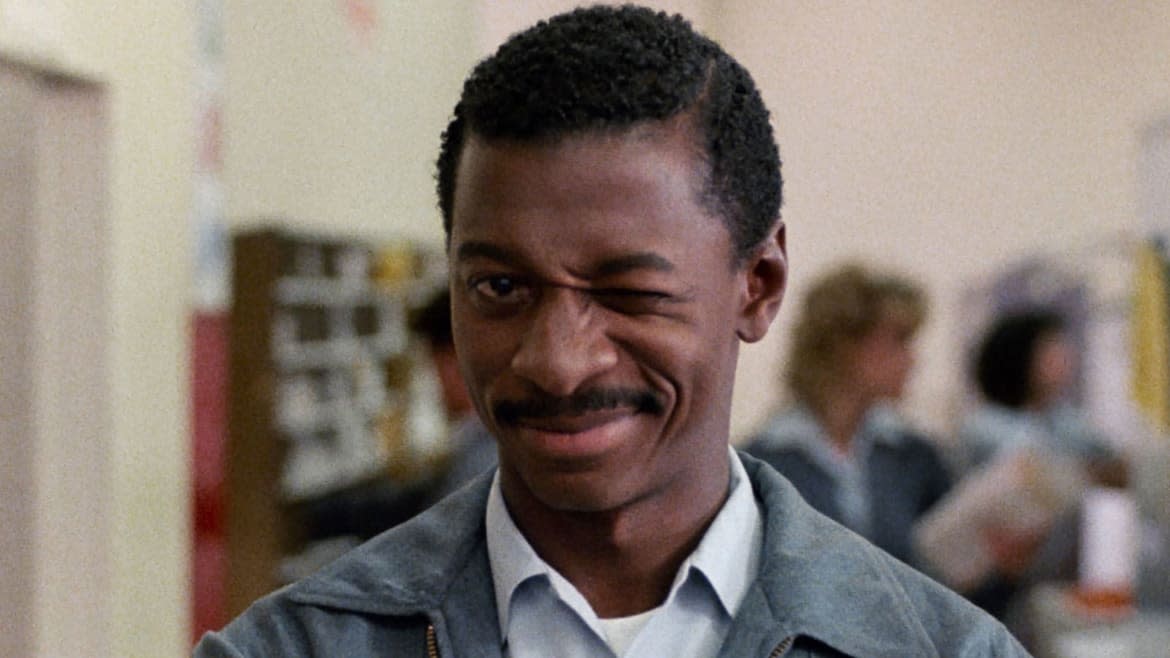
- Oops!Something went wrong.Please try again later.
- Oops!Something went wrong.Please try again later.
You can tell that a film has reached legendary status when the behind-the-scenes story is as well-known as its funniest quotes. Such is the case with Robert Townsend’s seminal debut Hollywood Shuffle, an equally absurd and incisive satire about Black stereotypes in Hollywood movies.
So it’s about time for that indie classic be canonized. On Feb. 28, Hollywood Shuffle enters the Criterion Collection, receiving a director-approved, special edition Blu-ray with new cast interviews and audio commentary featuring Townsend.
The personal events that inspired Hollywood Shuffle, as well as the financial challenges Townsend encountered while making it, provide as much insight on the racial politics of the movie industry as its hilarious script. After studying improv in his native Chicago, including at Second City, Townsend moved to Los Angeles in the early ’80s to pursue his dream of Hollywood stardom. Like many aspiring Black actors, particularly during that post-Blaxploitation period, he noticed a dearth of roles outside of offensive stereotypes and broadly written caricatures.
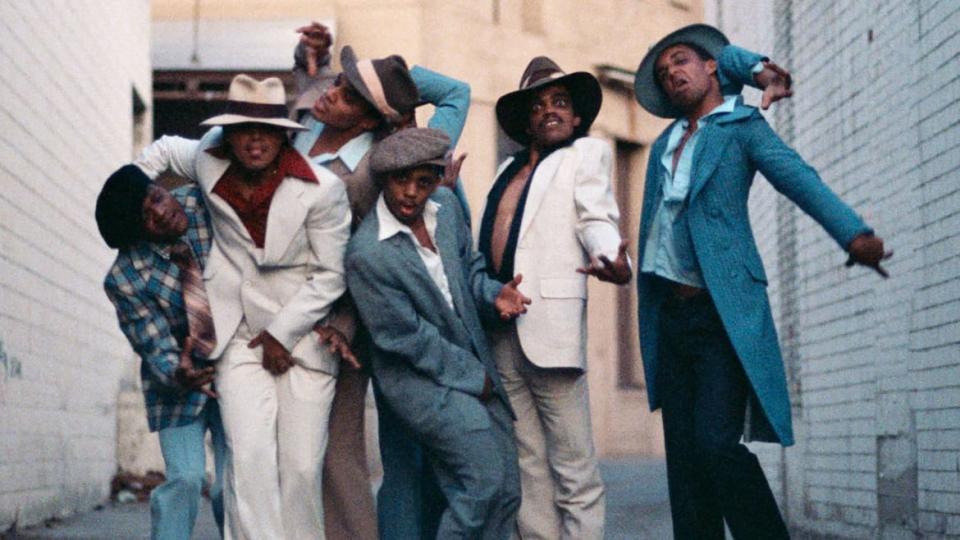
A still from Hollywood Shuffle.
Townsend ultimately managed to book a supporting part in the 1984 Oscar-nominated movie A Soldier’s Story. However, when he inquired about similar opportunities to work on a predominantly Black production, he was told by his agent that Hollywood only makes “one Black movie a year.”
So Townsend decided to turn lemons into lemonade, crafting the role(s) of a lifetime for himself in his own movie about his professional dilemmas in Hollywood. Along for the ride was his friend and fellow comedian Keenen Ivory Wayans, who had experienced similarly demeaning casting calls and auditions. The two co-wrote the screenplay for Hollywood Shuffle, in addition to acting in the film. Townsend partially financed the movie with money from acting gigs but had to come up with the latter half by maxing out credit cards—$60,000 of debt, to be exact. (This antidote oddly became a selling point for the film, the way director Sean Baker’s use of iPhones to film Tangerine added a level of intrigue to the small indie flick.)
In Hollywood Shuffle, Townsend plays Bobby Taylor, an aspiring actor still living in his mother’s house and working at a fast-food joint. A loaded opportunity comes along when he auditions for a crime film called “Jivetime Jimmy’s Revenge” that’s as derogatory and outrageous as it sounds. After booking the role, Bobby experiences a crisis of conscience through several hilarious fantasy sequences and sketches. Most notable is “Black Acting School,” an advertisement for a white-taught acting course on how to be more Black (courses include Shuffling 200 and Jive 101). The best of all is “Sneaking in the Movies,” a parody of At The Movies, featuring not-so-subtle spoofs of popular films like Indiana Jones and Dirty Harry with some overtly racist twists.
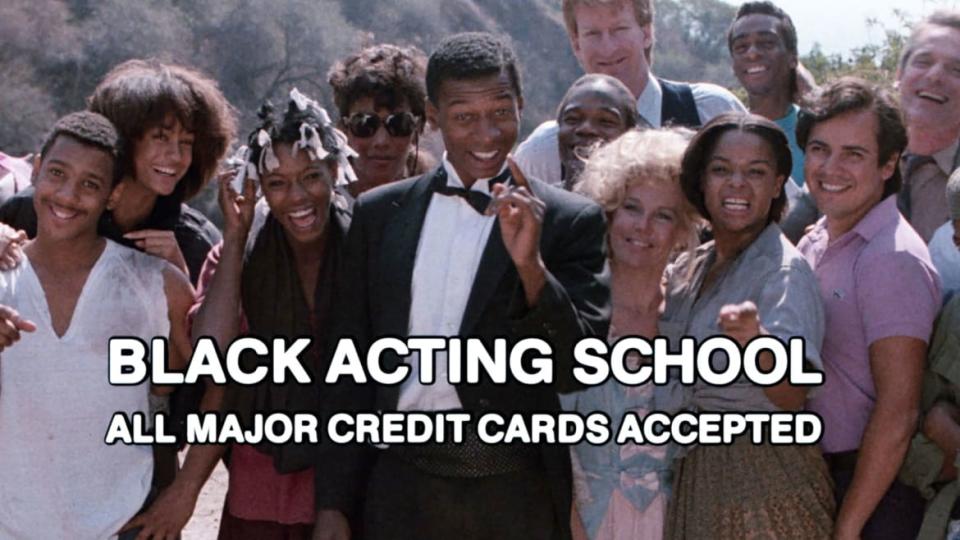
A still from Hollywood Shuffle.
In 2023, the film’s commentary can feel slightly outdated, given that many of the stereotypical roles lambasted in the film (pimps, slaves, gangsters, sex workers) are now being embraced by Black actors. Of course, many of these parts are being written with more nuance and empathy, as Black creatives are being given more opportunities behind the camera. Still, the movie provides an important snapshot of ’80s Hollywood, before Spike Lee, Julie Dash, Darnell Martin, John Singleton, and eventually Townsend—who would go on to direct several other features—ushered in a wave of diverse Black cinema at the end of the 20th century.
For Hollywood Shuffle’s Criterion release, Townsend spoke to The Daily Beast about what this accomplishment means to him, the film’s impact 36 years later and whether Hollywood can ever get slave movies right.
How did you discover Hollywood Shuffle was getting a Criterion release?
I think somebody from Criterion called me because I had worked with them. I did the audio commentary for Claudine, one of my favorite films. And I also did a documentary on Charles Burnett. And then they called about including that in the Criterion Collection. So I can’t remember where the call came from. But I was ecstatic. This is really a high honor.
How collaborative was the process? Did you get to suggest what special features or interviews you wanted included on the Blu-ray?
I was hands-on [with] everything. So we just kind of talked it through. I had done an interview with Elvis Mitchell. And then I said, “I think this interview is really good. We should include it.” Elvis is the best interviewer. So, best time with him. And then they were like,Hey, we want to get some of the Hollywood Shuffle players together?”And then, you know, I made suggestions, and they put it all together. But yeah, I was hands on. I mean, this is my baby. And so it’s such an honor because I have watched the Criterion Collection for 30 years, back when they were doing Truffaut and Hitchcock and all of that. So I’ve been a fan a long time.
Was there a sense of pressure making the film, considering the time and money constraints? Or did you go in with no expectations?
I didn’t really [feel] pressure because we were just having fun. We laughed all day. I’m from Chicago, and I grew up in the hood. And when you’re from the hood, you have to figure out a way to survive. And you’ve got to make whatever money you have to go as far as possible. And so when I was making Hollywood Shuffle, I was just being as resourceful as possible. And I didn’t think about it like, ‘Oh, this is the only money I’m gonna make.’ I had saved that money and the credit cards and all the whole story behind the film. I was so fed up with what was going on in Hollywood that, rather than complain, I said, “Let me do something about it.” So it wasn’t so much distress. It was just having fun. And then I’m there with Keenen, and we’re laughing. These are friends of mine, and we’re just having the best time.
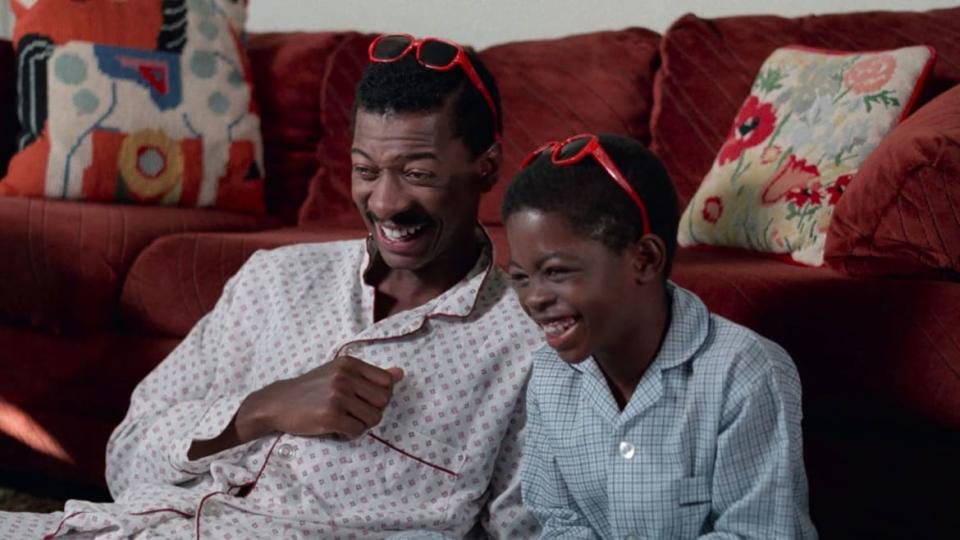
A still from Hollywood Shuffle.
Did you have any space to improvise with the script? Or were you able to come up with any sketches or jokes on the fly?
No. I mean, the Black Acting School—that was a chunk that I did in my stand-up early on. And then when we were thinking about doing a movie, we thought that could be a whole sketch. I was just doing all the parts—“My name is Willie,” you know?
But here’s what I would say. What I have learned as a director—and I think I learned this doing Hollywood Shuffle—was that, when you cast really talented people, you leave room for magic to happen. So we can say, ‘These are my words” and “Do the job like this.” But when you have John Witherspoon, when you have Dom Irrera, when you have Lisa Mende—they’re improv babies. So you let them go. When you work with master comedians like Eddie Murphy or Chris Tucker, they let them go. You can’t say, “You got to do what’s on the page, Eddie.” Eddie’s gonna be like, “I could come up with better jokes.”And so that’s part of the dance.
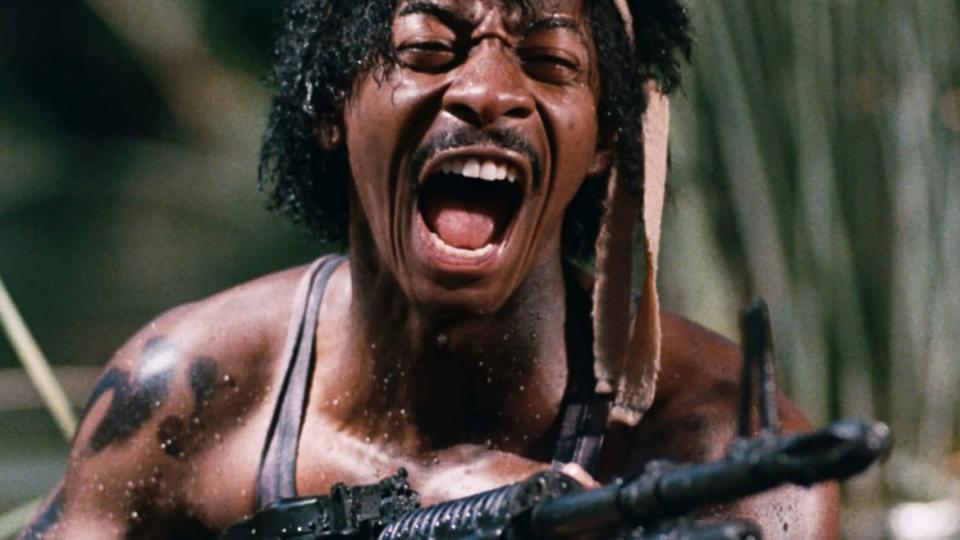
A still from Hollywood Shuffle.
Did you ever think of writing a sequel or something in a similar vein?
People have approached me and said, “There’s still some stuff there. We could do a sequel.” I don’t know. I have to find the way because it’s a different Hollywood now where we have a lot of Black creators in front and behind, so it’s a different time. The closest thing I’ve seen to what I would have done if I was going to do a Hollywood Shuffle Part 2 is Donald Glover doing Atlanta and Mr. Chocolate. I thought that was really brilliant. And Donald Glover is a forward-thinker. And that was very smart and satirical in a beautiful way.
Donald Glover’s ‘Atlanta’ Recaptures Its Magic in Fourth and Final Season
I was definitely reminded of the absurdist humor in Atlanta when rewatching the film. Do you see the film’s influence in a lot of current comedies?
We planted a seed with Hollywood Shuffle. So every now and then somebody on social media will reach out and go, “I appreciate you, man. Here’s your flowers.” And so when I go to film festivals and different events, people will come up and say, “Hey, you influenced my work.” I remember Ice Cube talking about Hollywood Shuffle. And he was talking about how they would act out the sketches from that and from Partners In Crime. And Dave Chappelle said, “Partners in Crime—that was my thing.” We were making a statement. And so I think there is a fiber that connects all of us because Keenen and I were the first soldiers over the hill in terms of making comedy and being satirical and not caring and just going for it.
Did you receive any blowback or have any negative interactions with industry people as a result of the film?
If I did, they never approached me because I think, in the film, you see me and Keenan’s love of cinema. And we didn’t go, “It’s just white people.” We also talked about the Black people accepting these roles. Because a part of the dilemma is not just the white men, it’s actors that will not speak up for themselves. So I think because I made a real honest statement on all sides. And I think there were people that went, “He’s just trying to tell a real story. And he’s being honest. And he wants to raise the bar for people of color.”
We still see a lot of the roles you lambaste in the movie in pop culture today. Thankfully, many of them are being written by Black writers, so there’s a level of humanity to them.
It’s a totally different time now. Back then, we had maybe one show. It was Good Times or The Jeffersons. And those were the only two shows, and we had that one movie. Now there’s a lot of movies and Black networks. There’s a whole land of creatives now, where it was just me and Spike at one point.
There’s still a lot of discomfort online about the depiction of slaves and slave movies in general. Do you think there’s a way to tell these stories ethically through the lens of entertainment?
I think all stories need to be told. It’s just that, is there a unique device to tell the story? We’ve seen, “You can’t come in here!” and “I’m taking your wife!” We’ve seen all of that. So unless you’re going to tell me something new, it just turns into trauma porn. I’ve been watching all these documentaries lately for something that I’m working on about the ’60s. And they always have footage of “white people only, Black people only.” And they always have that point. And I’m going, “Well, what is new? What else can we say about that?” At a certain point, everyone becomes desensitized. And I think we’ve got real trauma in real life. If it’s a fascinating story, I’d do a movie about slaves, if it spoke to me on a different level, and I was saying something that no one had ever said.
Are there any younger Black filmmakers who you’re digging at the moment?
I loved Get Out. I love Creed. So there’s Jordan Peele. For me, that’s at the top because he’s a comedian. And he comes out of sketch. He’s just funny, and he’s very political. And then I would say, Ryan Coogler. I think he’s just a visionary. They’re successful artists, but they understand how to tell a story and on a high-quality level and production value, all of that. So those are the two who speak to me right now.
Where Is the Oscars Buzz for ‘Nope’ and Jordan Peele?
Get the Daily Beast's biggest scoops and scandals delivered right to your inbox. Sign up now.
Stay informed and gain unlimited access to the Daily Beast's unmatched reporting. Subscribe now.

